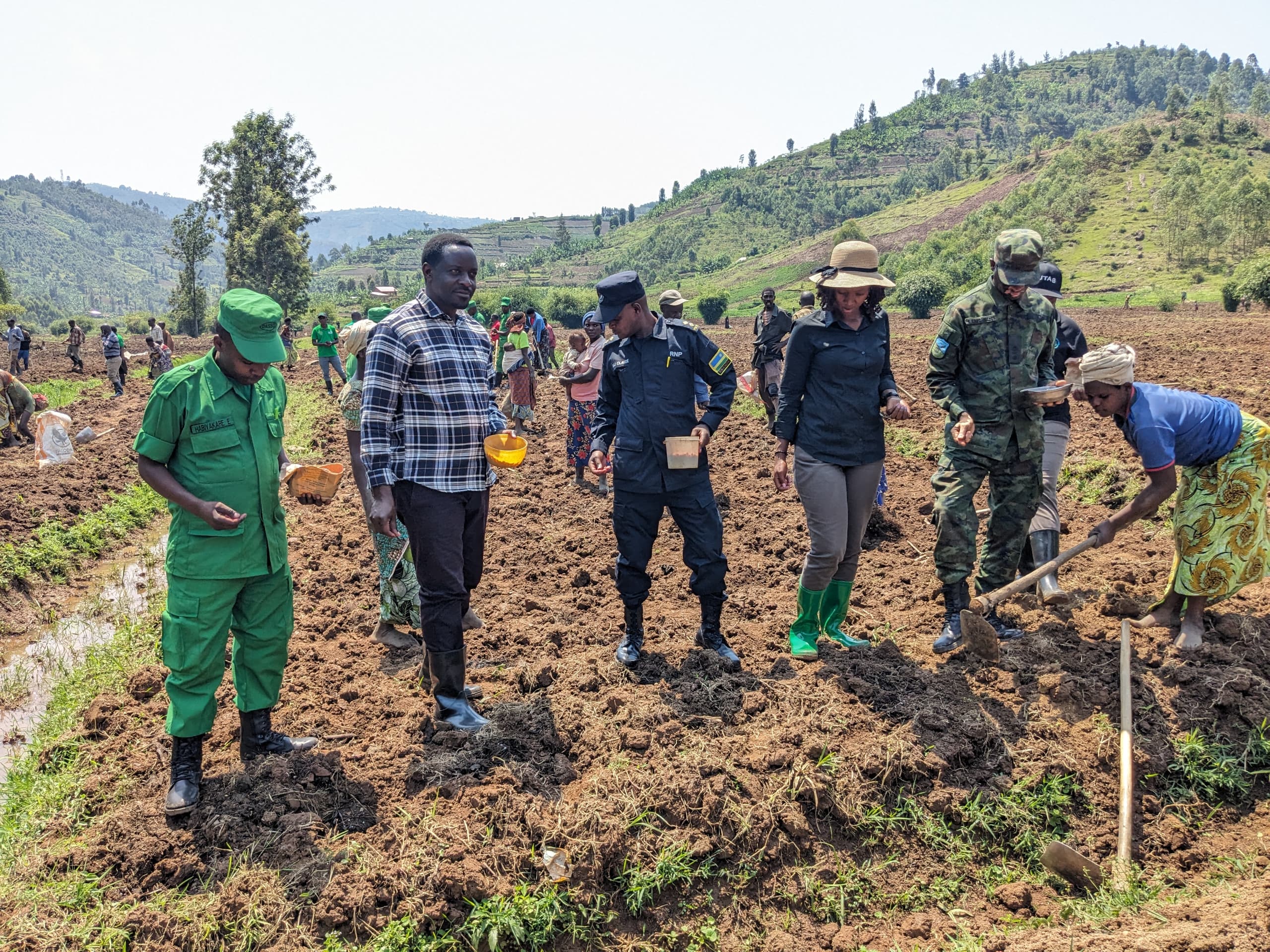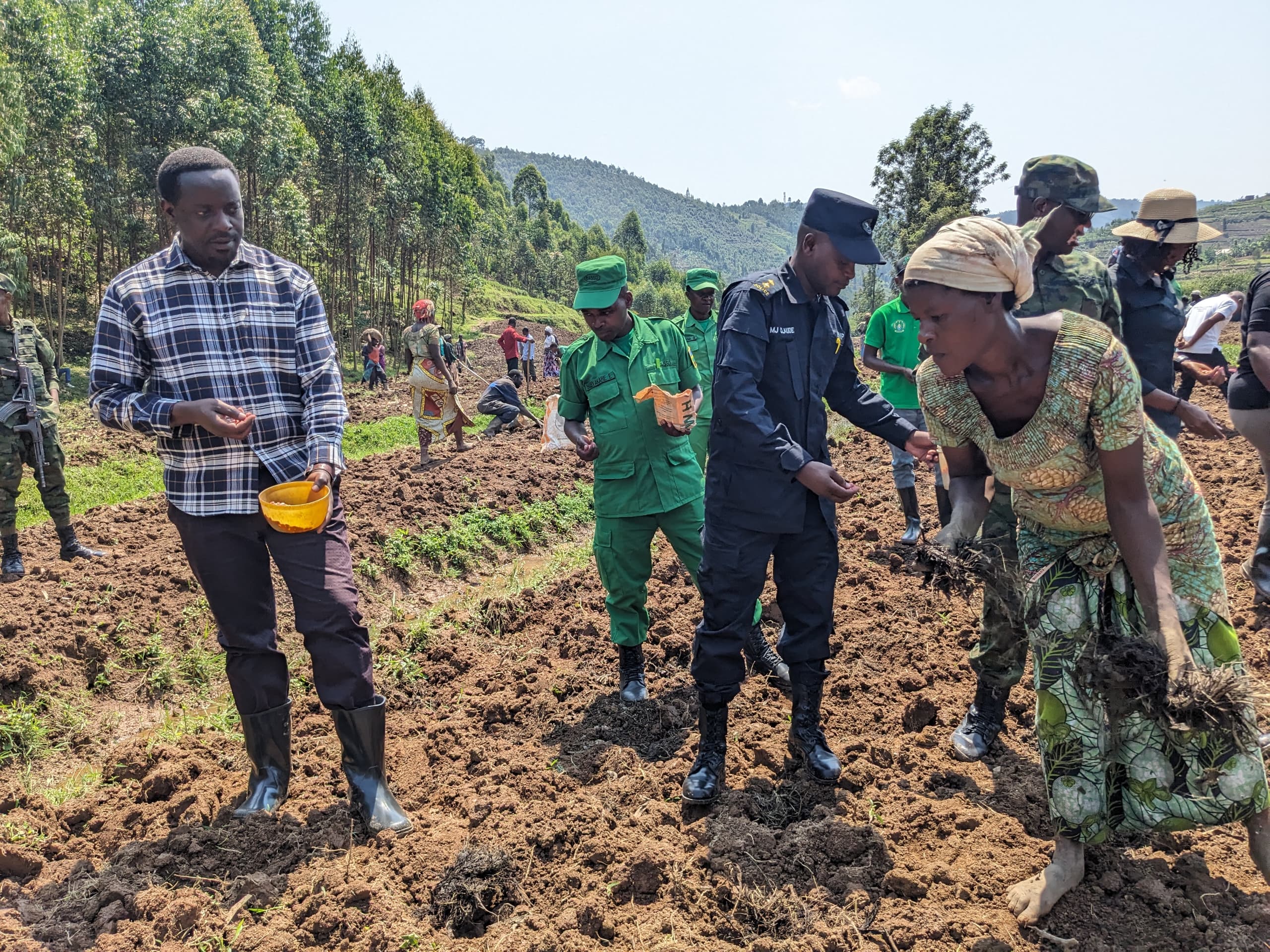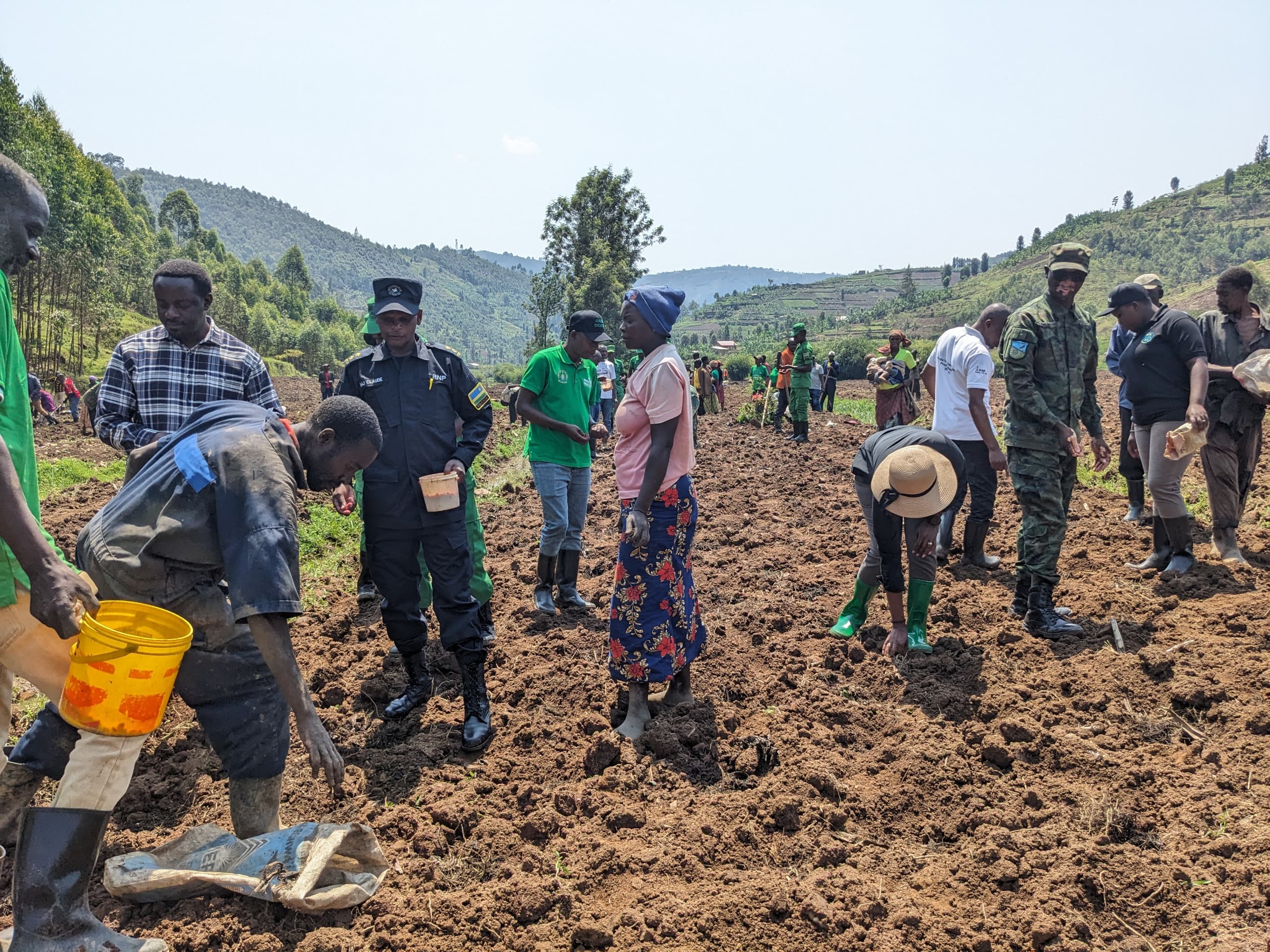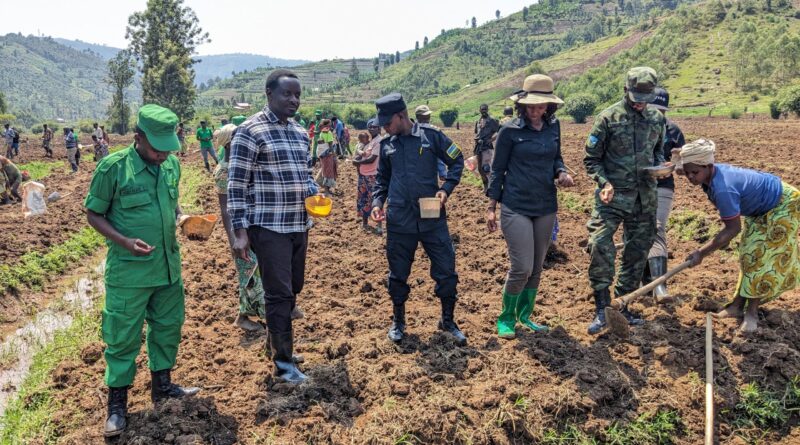Gicumbi: Farmers introduced to “FOBASI” approach to boost food security
The Vice Mayor of Gicumbi District in charge of Economic Development, Uwera Parfaite, said that land consolidation, organizing farmers into groups that grow into cooperatives, and making proper use of state-owned marshlands provided for cultivation will enable farmers to establish food basket sites aimed at ensuring food security while also producing surplus for the market.
This was highlighted on September 16, 2025, during the official launch of the farming season held in Ruvune Sector, on 20 hectares of marshland granted to residents free of charge.
In her message to farmers, it was explained that FOBASI (Food Basket Sites) is an approach that brings people together to cultivate consolidated land collectively, plant crops at the same time, harvest jointly, and follow cooperative guidelines such as harvesting in unison rather than individually. For instance, those who need fodder for their livestock will have to rely on their own personal plots instead of disrupting the communal crops.
Farmers were further told that the FOBASI model operates under cooperative rules, meaning no individual is allowed to harvest at will due to hunger; instead, they must wait until the collective harvest time since cultivation was done collectively.
Research shows that when farming is done properly, at least 4 to 5 tons can be harvested per hectare. With the 20 hectares provided for free to farmers in Ruvune and neighboring Rukomo Sectors, planting maize will significantly enhance food security in the area.
One resident interviewed by Green Africa expressed appreciation for being granted government land at no cost, emphasizing that collective farming strengthens agricultural productivity. He added that anyone who needs fodder can grow it in their private fields, which also benefits livestock by providing manure that enriches the soil.
Gicumbi District Mayor, Nzabonimpa Emmanuel, urged farmers to take good care of the land provided to them, avoid cutting down crops before the harvest season, and work closely with local leaders to access organic and chemical fertilizers. He stressed that cooperative farming will ensure higher yields and enable farmers to supply surplus to the market.
The district announced that five initial sites will be established to support consolidated farming on government land. Officials emphasized that if managed professionally, the system will not result in losses but instead guarantee surplus production for the market. At the same time, individual farmers were encouraged not to miss the upcoming rainfall season, to construct terraces, and to protect their crops to ensure sustainable yields on their private plots.






